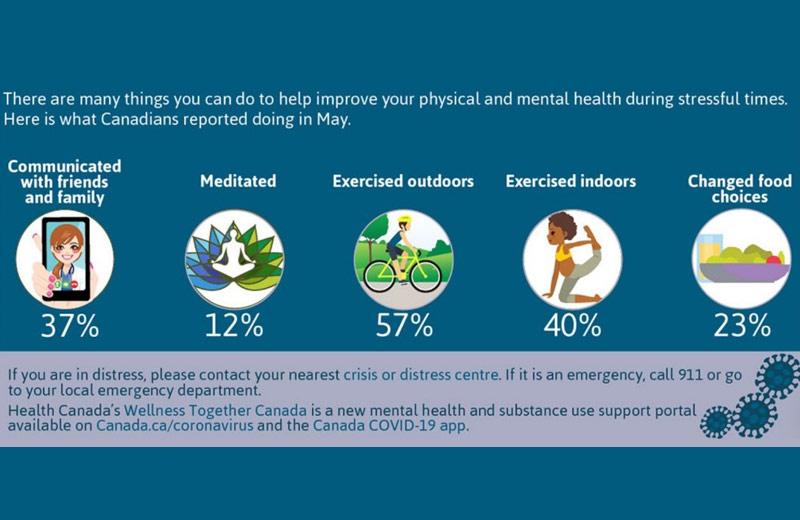Imagine it’s a typical Saturday evening and you’re getting dinner with your friends or family. You reach the restaurant or your friend’s house, and enjoy a pizza with a side beverage. You’ve had your fill, and dessert sounds like a great idea. You go back home, feeling that you’ve had a great evening with great company!
Over the last few months, this typical Saturday evening has become a lot less “typical.”
My name is Jin and I’m a fifth year dietetic student doing my practice education year with Northern Health. I’m interested in how eating patterns have changed during the COVID-19 pandemic. Here are some of my learnings.
COVID-19 food trends
The COVID-19 pandemic has had a big impact on what and how British Columbians eat. According to Google Trends, some interesting internet search patterns have appeared:
- Recipes for baked goods, such as banana bread, cinnamon rolls, and sourdough rose when physical distancing orders began, and peaked at the end of April.
- Internet searches for Northern BC food delivery services (e.g. Skip the Dishes; Spyce Delivery) and restaurant delivery services increased in March, and began slowly decreasing in mid-April.
- Fewer people were using the search term “diet.” In fact, it showed its lowest ever searches in four years.
What might explain these trends?
Curious about these trends, I searched for possible explanations. As it turns out, there are many reasons why these changes might be happening:
- According to some journalists, baking is just one method used to combat boredom during the COVID-19 pandemic. Research also shows that baking might help reduce stress or be a form of therapy, which could be helpful during these times.
- The increase in food delivery searches was likely due to a variety of factors, such as fear of going out in public, a desire to follow physical distancing guidelines, and restaurants stopping dine-in services.
- The decrease in “diet” searches could mean that people might be focusing on food as a way to reduce stress. Perhaps Canadians have been using this time to develop new cooking and baking skills, or finding ways to connect virtually over food.
So, how can a pandemic impact eating habits?
A global pandemic can be stressful! Statistics Canada reported that the COVID-19 pandemic is taking a toll on the mental health of many Canadian, especially women and youth. Changes such as working from home, home schooling, and caring for children can upset routine and impact stress.
When routines shift and stress increases, changes in food patters are often impacted, and this has been the case during COVID-19 (e.g., more people are cooking at home, and others are starting gardens). In these times, it’s important to care for ourselves. Part of caring for ourselves can be taking pleasure and enjoyment in food. We can do this by listening to our hunger/satiation cues, focusing on foods that taste good and bring us joy, and letting go of the ‘guilt’ that can be associated with eating certain foods.
What’s next?
We’ve learned a lot during this pandemic! Personally, I’ve realized how much joy and togetherness food offers. Food is so much more than just source of fuel for our bodies – it’s also a tool that brings loved ones and new friends together.
The COVID-19 pandemic has also shown that eating habits can be affected by world events, and the stress that may come from such events. During these uncertain times, it’s important to practise self-compassion around food, and to give ourselves the grace to focus on what we need in each moment.
As we adjust to this new normal, it’s for us to decide what we’ll take from this experience, and what we leave behind. I challenge you to appreciate what was taken for granted, as even the slightest effort in gratitude goes a long way.














Comments